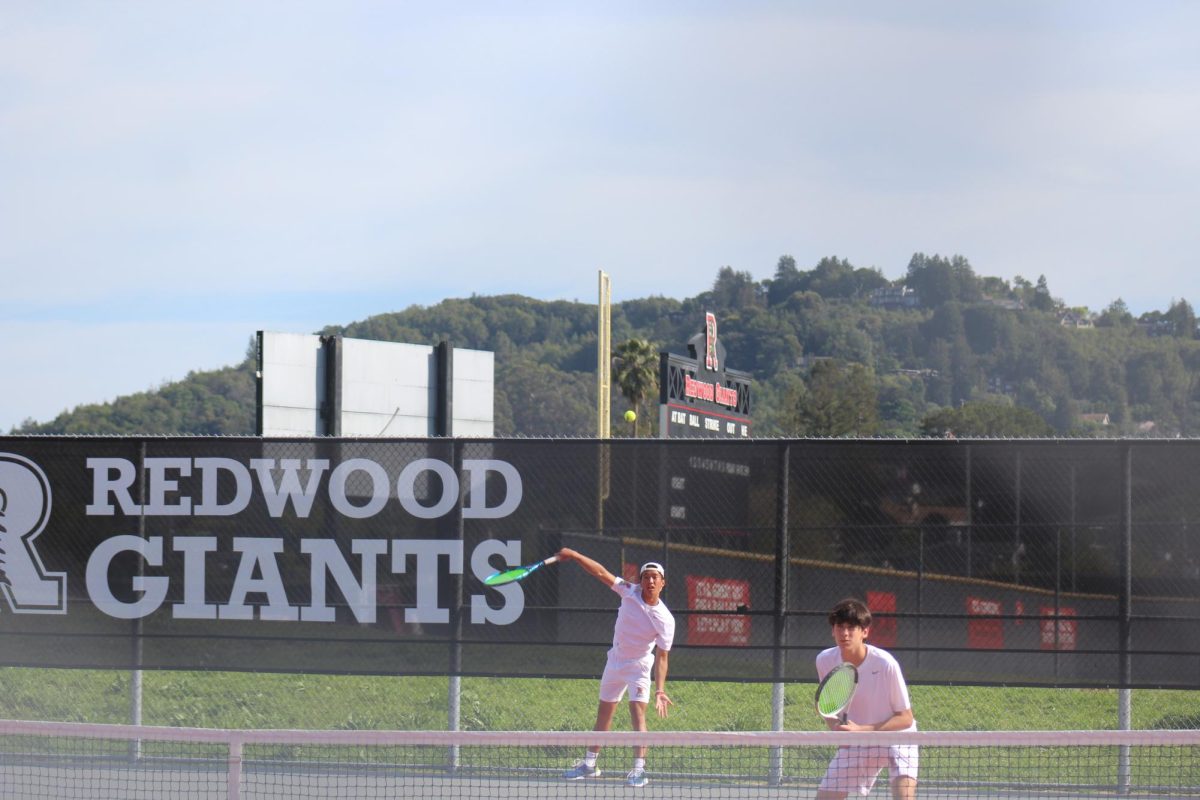Redwood donates protective equipment to hospitals and police departments
April 20, 2020

Ever since the outbreak of COVID-19, the world has changed drastically. As of April 14, Marin County had at least 171 confirmed coronavirus cases, as well as 10 deaths from the virus. Local efforts have strived to combat the spread of coronavirus in the community and strengthen the capabilities of responses. Many Marin County hospitals and police departments have experienced shortages in protective supplies such as goggles, safety glasses, and gloves. Endeavoring to aid coronavirus relief within the county, the science departments of the Tam district highschools have been donating eye protection and gloves to local hospitals and police stations, seeing that these supplies are difficult to obtain at the moment.
Redwood senior and student body president Josh Chan wanted to make sure Redwood was among one of the many schools providing support.
“My mom is a doctor at Kaiser, and one thing I was talking to her about was how some of the goggles the health professionals were using were actually donated by local schools,” Chan said. I wasn’t sure which schools had donated, but it gave me the idea to contact the [Redwood] administration to make sure that if we have any of those leftover materials from school, we could donate them. Mr. Sondheim told me that we had already donated some of our supplies to Central Marin Police, Kaiser Permanente, and Marin General,” Chan said.
In total, Redwood has donated 30 pairs of safety goggles, 140 pairs of rubber goggles, 15 boxes of latex gloves and 18 boxes of non-latex gloves with 100 in each box. Principal David Sondheim was eager to offer Redwood’s assistance as soon as he was contacted.
“The local hospitals and police departments requested donations from everyone in the county, and we knew we had goggles and gloves so we made them available.” Sondheim said.
Redwood honors biomedical science, chemistry, and The Living Earth teacher Skip Lovelady, collected the materials from Redwood science classrooms.
“I was contacted by the principal on the first weekend we were closed. He reached out to me and said ‘I want you to collect all the gloves, safety goggles, and safety glasses in the department.’ I did that over the course of two days.” Lovelady said. “We were the first school in the county to do it. The Central Marin Police got the first round of supplies… as early as March 23 and March 24. Later in the week I heard that the other [supplies] were going to Kaiser.”
The administration then handled the distribution of the collected supplies. Sondheim oversaw the transportation of the materials from Redwood by taking the supplies Lovelady gathered and depositing them at respective donation sites.
“Some of [the supplies] were taken to the Central Marin Police authority’s donation box and the rest were taken to the Marin County Office of Education. They distributed them to the local hospitals,” Sondheim said.
Kaiser will likely repay Redwood for its donations, but the specific details of any financial compensation are still unclear.

Safety glasses donated to aid local hospitals
According to Lovelady, the immediate issue for many hospitals is not a financial inability to purchase materials, but a shortage of necessary equipment on the market.
“Mr. Sondheim told me that Kaiser was going to reimburse us at some time in the future,” Lovelady said. “Kaiser was not necessarily needing free stuff, they needed stuff now. They just couldn’t buy supplies because no one can buy supplies right now.”
Students, teachers, and administration hope that these donations help solve the immediate issue of lack of supplies.
“… They need all the help they can get. I think just the fact that they have these extra supplies does help,” Chan said.
Sondheim was eager to provide any help possible and happy to create a positive effect on the community, even in the wake of school closure.
“Hopefully it’s providing them with more of the important personal protective equipment that they need to be safe while they treat patients, or, in the case of the police, when they work with the public. I’m really glad we could help them, particularly while we’re closed, to make good use of our resources to help the entire community,” Sondheim said.






















